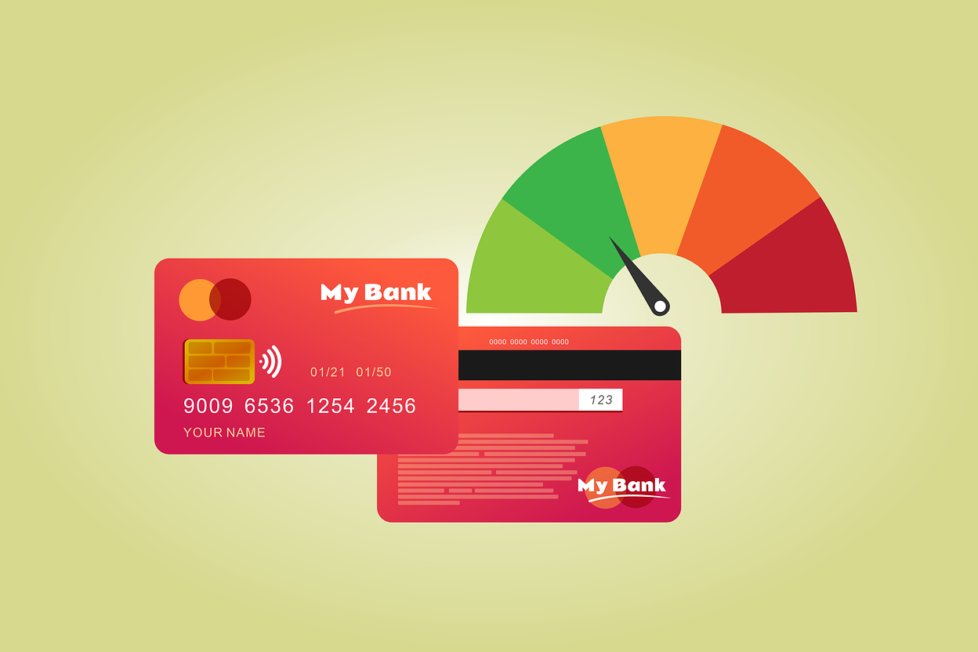What is the difference between credit score & credit report.


In the realm of personal finance and lending, a credit score and a credit report are crucial components. In analysing a person’s creditworthiness and whether they qualify for loans, credit cards, and other financial goods, they are extremely important.
Although these names are related, they perform separate functions and offer various sorts of information. Please continue reading this article until the conclusion for a more thorough breakdown of the distinctions between a credit score and a credit report.
Credit Score: Meaning
Credit score is used to assess someone’s creditworthiness. Financial organisations use this three-digit figure to determine the risk involved in lending money to a certain borrower.
It normally varies from 300 to 850. A borrower who has a better credit score poses less of a danger to the lender and is more likely to be able to pay back the debt.
Credit Report: Meaning
A credit report is a comprehensive history of a person’s credit. Included are comprehensive facts about credit accounts, repayment history, unpaid bills, defaults, late payments, credit inquiries, and any unfavourable comments.
A person’s financial obligations and creditworthiness are fully outlined in credit reports.
Difference between Credit Score and Credit Report –
The differences between a credit score and a credit report are substantial. A credit report provides a comprehensive overview of a person’s credit history, whereas a credit score measures that data.
By providing a numerical evaluation of a person’s creditworthiness, a credit score enables lenders to analyse loan risk more quickly.
On the other hand, a credit report offers a detailed summary of a person’s borrowing and payback history, including specific credit accounts, payment tendencies, and any unfavourable information.
Credit scores are produced using certain credit scoring algorithms that assign variable weights to various criteria.
These models generate the credit score using advanced algorithms based on the individual’s credit data. On the other hand, a credit report is nothing more than a collection of unprocessed credit data.
Credit ratings’ primary objectives are to assess credit risk and foresee the possibility of on-time payments. They provide a brief assessment of creditworthiness. On the other hand, the comprehensive view of a person’s credit behaviour provided by credit reports helps lenders to assess a borrower’s general creditworthiness and make informed lending decisions.
A comparison of credit history and score
A positive credit report and a high credit score are mutually exclusive. Your credit score will be high if your credit history is spotless. There are several warning signs on your credit report that may negatively affect your credit score.
Your credit score indicates a reduced credit risk when you are given new credit, and the opposite is also true. Your perceived risk of being approved for more credit is lower the higher your credit score is in the eyes of the credit bureau.
A brief summary of your credit history is provided by your credit score, whereas your credit report provides an overview of your credit history.
Who Provides Credit Reports and Credit Scores in India?
Although there are many companies in India that provide credit reports, CIBIL TransUnion’s report is the one that is used the most.
Three additional well-known credit reporting firms are now operating in India: High Mark Credit Information Services, Experian Credit Information Co. of India, and Equifax Credit Information Services. The CIBIL TransUnion credit report and CIBIL score are factors that most lenders use.
Lenders regularly evaluate loan applications, set credit limits, and determine interest rates using credit scores.
They play a big part in the decisions concerning credit. Employers, landlords, banks, and other financial institutions utilise credit reports to evaluate a person’s financial responsibilities and make informed decisions regarding loans, rent, or employment.
Conclusion
In conclusion, it should be highlighted that credit scores and credit reports are distinct entities with different purposes in the realm of personal finance. Credit reports provide a detailed account of a person’s credit history, whereas credit scores provide a numerical assessment of creditworthiness.
The assessment of credit risk, the determination of loan eligibility, and the capacity to make prudent financial decisions all significantly rely on both credit scores and credit reports. People must be able to discern between these two ideas in order to manage their credit effectively.
DISCLAIMER: The author is solely responsible for the views expressed in this article. The author carries the responsibility for citing and/or licensing of images utilized within the text.
